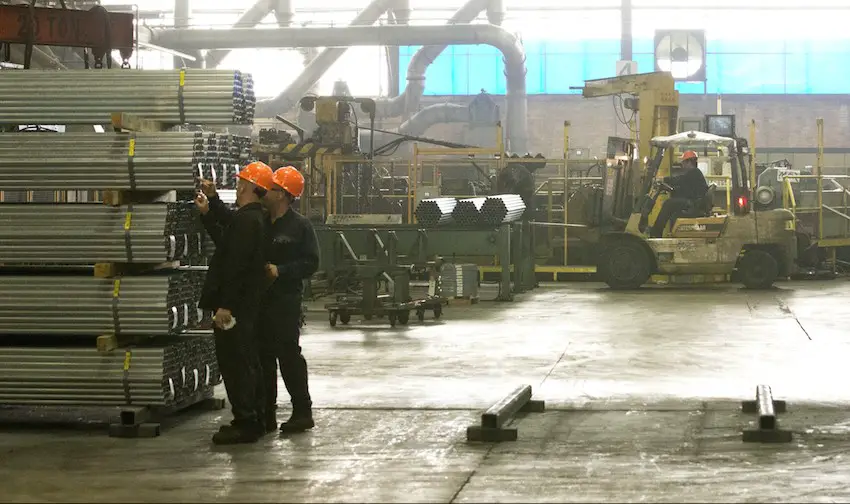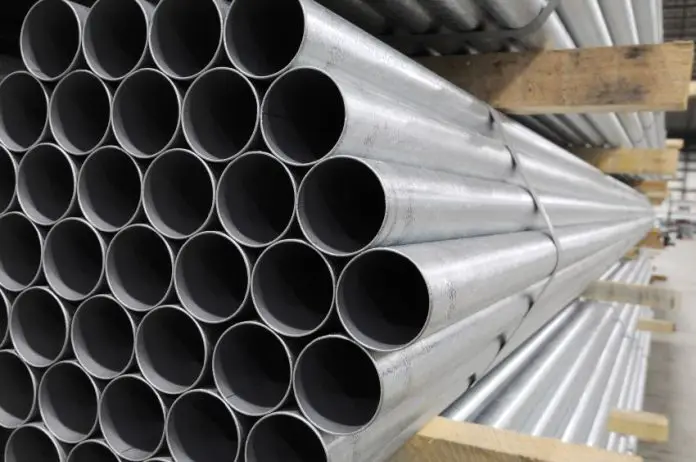Zekelman Industries, the largest independent steel pipe and tube manufacturer in North America, recently filed a lawsuit against Mexico alleging it has violated trade agreements and is dumping steel on the U.S. market.
The lawsuit also alleges that Mexico’s conduct threatens the national security of the United States by damaging domestic steel producers, according to industry publication Metal Center News.

Zekelman claims that Mexico’s steel dumping threatens US $520 billion in total economic output as American. steel producers delay investments, waiting for a better business climate. The lawsuit claims that American national security is being threatened because a healthy U.S. steel industry — which it said supported nearly 1.7 million jobs in 2023 — is critical to supplying that country’s military.
In an Oct. 21 press release, Zekelman alleged these violations have been ongoing, forcing it to close a factory in 2022 while shuttering another facility next year. The closure of these two locations will result in more than 400 American workers losing their jobs, it said.
In addition, Zekelman filed petitions against Mexico with the U.S. Office of Homeland Security (demanding it enforce trade agreements between the United States and Mexico) and the Commonwealth of Pennsylvania (stating that Mexico is discriminating against steel conduit made in Pennsylvania and violating the Pennsylvania Trade Practices Act).
The company’s executive chairman and CEO, Barry Zekelman, insisted that the U.S. government is failing to enforce trade rules, according to Metal Center News.
“The American steel industry is being damaged and American workers are paying a price,” Zekelman said.
Steel exports from Mexico to the U.S. on the rise
In March 2018, then-U.S. President Donald Trump imposed tariffs on steel (25%) and aluminum (10%), targeting Chinese imports. In June 2018, Trump extended the tariffs to the European Union, Canada and Mexico.
While negotiating the United States-Mexico-Canada free trade agreement (USMCA) the following year, the United States eliminated the tariffs. In return, Mexico promised to prevent import volumes that exceeded the historic baseline levels established as the 2015-2017 average of shipments.

However, according to the Coalition for a Prosperous America (CPA), a research and advocacy group championing trade-protectionist policies in the United States, steel shipments from Mexico have increased dramatically since 2021, causing declining employment and stunted growth at U.S. steel makers.
According to Zekelman, steel exports from Mexico to the U.S. rose in 2022 to 72% above the historic baseline levels.
An April report by the CPA claimed that official U.S. census data shows that total steel product exports from Mexico to the U.S. in 2023 rose to 36% over the 2015-2017 baseline, and initial 2024 trade data suggests imports will rise again in 2024.
The Sheinbaum administration in Mexico responds
In court filings, Zekelman made clear that it believes Mexico is serving as a trade “backdoor” so that Chinese imports can evade U.S. tariffs. A growing, bipartisan group of U.S. legislators appears to agree.
By bringing materials to Mexico then having those goods improved upon or some value added to them, Chinese products can qualify as Mexican-made and circumvent U.S. tariffs on Chinese goods.
In March, two U.S. senators introduced bipartisan legislation seeking to reinstate the 25% steel tariff.
In response, the Biden administration announced new rules in July that target firms from China and other countries that route shipments of steel and aluminum through Mexico to try to evade tariffs.
Now, reported CNBC, “duties on steel and Mexican products that were melted or poured outside of North America, or aluminum either cast or smelt in China, are included in the tariffs policy to ease concerns that Chinese steel and aluminum are coming into the U.S. under the USMCA.”
The new Mexican administration has acknowledged the concerns of its northern neighbor while denying that it is being used as a back door.
Under President Claudia Sheinbaum, the new federal government has expressed that it aims to reduce dependence on Chinese imports and strengthen the USMCA.
And earlier this month, Economy Minister Marcelo Ebrard said that Mexico “will mobilize all legitimate interests in favor of North America.”
With reports from Metal Center News, CNBC and BBC
